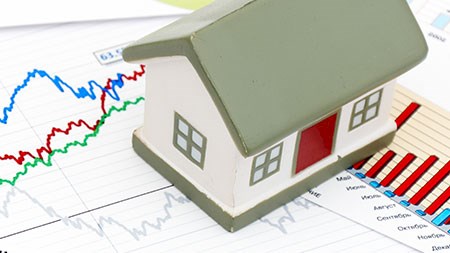According to research, it only takes a potential buyer a few minutes to decide whether they like a property or not. As with most areas in life, selling a property is all about making a good first impression, says Adrian Goslett, CEO of RE/MAX of Southern Africa.
He notes that while there are certain things that sellers can do to make sure that their home is in its best possible condition before it is placed on the market, certain elements that are often beyond a homeowner’s control will play a vital role in the marketability of the property before a buyer has even viewed it.
Goslett lists these elements as:
Location
Goslett says that the number one external factor that influences how a home is valued in the eyes of a potential buyer is its location. “We have all heard the adage of location, location, location too many times, but it is an essential element, especially when it comes to the perceived value of a property,” he says. “Where the property is situated and what is around it will impact on how sought-after it is. Factors such as its proximity to entertainment and shopping facilities, recreation areas, good schools and other amenities will all bear weight on how the property is viewed and valued by potential buyers.”
Goslett adds that just as proximity to positive aspects will have buyers viewing the property in a positive light, proximity to negative aspects such as noisy freeways, railway lines or airports or anything else that could be seen by a buyer as a potential annoyance or eyesore will negatively affect their opinion of the property.
Condition of the neighbourhood
According to Goslett, while the property could be in an excellent condition and the best in the area, the condition of the neighbourhood in which it is situated has the potential to elevate or bring down the property’s value. “Unfortunately it is an aspect that is often out of the homeowner’s control, but the general upkeep and maintenance of a neighbourhood is important to the value of the properties in that area. A rundown area could result in the homeowner having to drop their price in order to sell. Where possible, homeowner’s should form or join a homeowner’s association to ensure that the community they live in is properly taken care of,” says Goslett. “It may mean paying some kind of levy or fee, but the rewards will be worth it in the long run. It is also always important to ensure that the home has curb appeal and stands out from the other homes in the area, regardless of the condition of the rest of the neighbourhood.”
Poor or unusual renovation
While maintenance of a home and keeping it up-to-date is very important, Goslett says that homeowners will need to carefully consider certain renovations before they decide to go ahead. Generally renovations will increase the perceived value of a property, however, unusual renovations such as a home spa or gym could eliminate it as an option for certain buyers. It is also vital that all renovations are completed by a professional and are not poorly executed DIY renovations that could end up costing more to rectify. All renovations should be undertaken in the correct manner, through the correct channels and be completed before the home is placed on the market. Poor workmanship or unfinished projects will only devalue the property in the buyer’s eyes.
Lack of parking
Goslett says that property with no or limited parking is viewed as less valuable than those with a secure parking space, especially in heavily populated regions such as Cape Town’s city centre. He says that ample parking space can add as much as R100 000 to the value of a property in certain areas where parking is at a premium.
“Completing the necessary research from day one will help homeowners to make the right decision and avoid their property becoming a financial burden in the future,” Goslett concludes.

